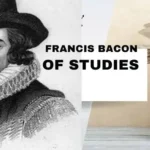Arms and the Man Important Questions Answers
Arms and the Man Important Quotations Explanation
Arms and the Man written by George Bernard Shaw is a famous anti-sentimental play. The play is a comical satire against the false illusion of love and heroism of soldering. Bluntschli, the hero and the main character of the play is the mouthpiece of G.B.Shaw. it is through Bluntschli he has presented the realities of love and war.
Arms and the Man Important questions answers and quotations explanation
(1) Consider Arms and the Man as an anti-sentimental comedy.
Ans: G.B Shaw’s Arms and the Man is not just a happy comedy of the boy meets girl type; it has some serious social purpose and it reveals some of the defects in our individual and social attitude which need to be corrected if we want to develop a healthy attitude to life.
Shaw calls the play ‘anti-romantic’ not because Shaw is against genuine romance and love. He uses the word ‘romantic’ in the sense of unrealistic, overidealistic sentimental and false notion. In fact, Bluntschli is himself a romantic character in the good sense of being possessed of a spirit of courage, fact and responsiveness to the attraction of sentimental but essentially good natured girl like Raina.
(2) Consider Arms and the Man a Ruritarian play.
Ans: Anthony Hope, an English novelist wrote a popular tale named “The Prisoner of Zenda” where he describes an imaginary country named Ruritania in South-East Europe. Therefore, the term “Ruritanian” relates to the romantic adventure and its setting. As G.B Shaw’s Arms and the Man has a romantic Bulgarian setting and the play shows the conventional romanticism in love and war and its final annihilation by a true romantic (Bluntschli), it is called a Ruritanian play.
(3) Explain the significance of the title of the play “Arms and the Man”.
Ans: The title “Arms and the Man” is taken from a phrase translated by Dryden – “Arms and the Man I sing” from a Latin phrase “Arma Viramquo Cano” taken from Virgil’s Aeneid. The term ‘Arms’ refers to both weapons and embraces, thereby reflects the two themes of the play – War and Love. Virgil’s “Aeneid” is an epic of war where he glorifies the heroic deeds and adventures of the hero Aeneas.
But in the play, Arms and the Man Virgil’s phrase receives an ironic treatment at the hands of Shaw. He does not glorify war and the profession of soldering, rather he satires war and the profession of soldering in a comical way.
Thus the of the play is suitable one as it gives the hints of dramatist’s mental propensity of exhibiting the illusion regarding the glory of war and heroism of soldering. Shaw has shown the falsity of such romantic ideas. He has emphasized that ‘Man’ is supreme creature of impulse and instinct; greater than exaggeration of ‘Arms’.
(4) “A narrow shave, but a miss is as good as a mile” – Explain the comment.
Ans: The quoted comment taken from G.B Shaw’s anti-romantic comedy Arms and the Man is made by Bluntschli to Raina. When Raina saves his life by telling a lie to the pursuing Russian officers, Bluntschli says that it is a very narrow escape for him and the result of this escape is as vast as a mile for him because this escape gives him the privilege to live longer.
(5) “The young ones carry pistol and cartridges: the old ones, grub” – Explain the comment.
Ans: The quoted comment taken from G.B Shaw’s anti-romantic comedy Arms and the Man is made by Bluntschli to Raina. After having eaten the chocolate creams given by Raina, Bluntschli points out to Raina the distinctions between an experienced and an inexperienced soldier. According to him, the experienced soldier knows that ammunition is of little use in modern warfare as the real danger lies not in the army’s attack but in the shortage of food supply. On the contrary, the young soldiers do not believe in this and carry pistols, cartridges in their pockets instead of food.
(6) “He did it like an operatic tenor” – Explain the comment.
Ans: The quoted line taken from G.B Shaw’s anti-romantic comedy Arms and the Man is made by Bluntschli to Raina. Describing the cavalry charge by Sergius, Bluntschli says that it is foolish on the part of Sergius to have led the cavalry charge against an artillery as it was on the part of Don Quixote – the hero of the Spanish novel of the same name written by Cervantes – to have charged the windmill, mistaking the sails of the windmill for a monstrous giant. Bluntschli says that as the chief singer in an opera sings louder than others, Sergius also led his soldiers just like an ideal hero with his well-kept moustache and bright eyes.
(7) What is Ernani and what is its relevance in the play Arms and the Man?
Ans: In G.B Shaw’s anti-romantic comedy Arms and the Man Raina after saving the life of Bluntschli from the pursuing Russian officers, compares the way of Bluntschli’s escape with that of Ernani – the hero of an opera entitled Ernani composed by the Italian composer Giuseppe Verdi. Raina says that like Ernani, Bluntschli is pursued by enemies and like the Castilian noble she thinks it her duty to rescue him and save his life. This comment makes it very clear that Raina’s view of the world is based not on any practical or realistic ground but merely on her bookish and fictional knowledge.
(8) “Soldering…..is a coward’s art” – Explain the comment.
Ans: The quoted comment taken from G.B Shaw’s anti-romantic comedy Arms and the Man is made by Sergius to Catherine Petkoff. Through the comment Sergius tries to justify his decision to resign from the job.
He says that modern warfare is marked by cowardice. The strategy of modern warfare consists in finding out when the enemy is the weakest and attacking at that time. The modern warfare, according to Sergius, is not the art of sacrificing for the sake of country’s glory but the art of keeping away from danger and yet trying to win. It is actually an expression of disillusionment of Sergius after being not promoted in spite of his successful cavalry charge.
(9) What is “An incurably romantic disposition”?
Ans: The quoted phrase is uttered by Bluntschli about the disposition of himself. He explains why he considers himself to be romantically inclined. He says that when he was just a boy, he ran away from his home twice. He adds that in spite of having a rich parentage he ran away from home and got himself enlisted in the army. He further says that his coming to Petkoffs’ house to return the coat is merely a pretext; actually he wanted to see Raina once again. In this way, Bluntschli confesses that he loves Raina and proves his incurably romantic disposition.
(10) Oh, war! the dreams of patriots and heroes” — Explain the line in the play Arms and the Man.
Ans: The quoted comment is made by Sergius in a state of disillusionment about war. He says that the description of the circumstances under which Bluntschli’s friend died makes it clear that the heroic conception of war and soldiership is ridiculous and not based on reality because he was not afforded any opportunity of showing his heroism in a face to face equal fight. Sergius therefore feels that war which is a dream of people with romantic notion is nothing but a hoax.
(11) What are the themes of the play “Arms and the Man”?
(Or) What is the play “Arms and the Man” about?
Ans: Though the play “Arms and the Man” is full of farcical elements still it is not farce but a comedy, the purpose of which is to mock some human or social folly. In Arms and the Man, G.B.Shaw’s purpose is to wreck romantic idealism about love and war which are two main themes of the play.
Shaw believes that war is nothing but destruction and marriage is desirable and good. But both in the play have wrapped in false romantic illusions which ultimately bring disastrous war and unhappy marriage. Shaw exposes that there is no heroism in war and soildering. To him soildering is the coward’s act and love is not a romance but a reality of life which feeds man’s moral passion and man’s practical requirements of life.
(12) What is G.B Shaw’s attitude towards love as presented in the play “Arms and the Man”?
Ans: G.B Shaw believes, “Love is not a romance but a reality. There can be love in response to human relationship, man’s moral passion and man’s practical requirements of life”. Shaw does not dwell in the illusory world of love. Sergius’ romantic love is shattered when he realizes his attraction towards the handsome maid Louka.
Reality also takes in charge over romantic heart of Raina when she meets Bluntschli. Sergius and Raina who are apostles of higher love, ultimately change their attitude when Sergius comes in touch with Louka, the rational maid-servant of the Petkoff and on the other hand the realistic Bluntschli wins the heart of the romantic Raina.
13. “If you are incapable of gratitude you are incapable of any noble sentiment.” – Explain the line.
Ans: The quoted line is spoken by Raina to Bluntschli in the library of her home in Bulgaria. Through the comment Raina means to say that Bluntschli’s incapability to be thankful shows that he is not capable of any nobility of feeling and thought. She says that even animals are thankful to those who protect them, suggesting thereby that Bluntschli is even worse than animals if he is not to grateful to her.
14. “I mean the noble attitude and the thrilling voice” – Who says it and what does the speaker want to suggest?
Ans: The quoted comment is made by Raina to Bluntschli. Through the comment Raina means to say that throughout her life, she has been affecting an attitude of idealism, talking in a stately tone and pretending to be noble and idealistic. In her childhood, she adopted this pose in front of her nurse who readily believed in it. She always adopts the same pose of nobility of sentiment in front of her parents who also submit to it. Again, she adopts the pose of “higher love” in front of Sergius who himself is a man of similar nature. But Bluntschli is the first man who has refused to believe in the pretentious of Raina.
15. “I will not be a coward and trifler.” – Who says it and what does the speaker want say here?
Ans: The quoted comment is made by Sergius to Louka, the maid servant of Petkoff when Louka expresses her suspicion regarding Sergius’ decision to marry her. Sergius swaggers that if he had a mind to love her he would marry her also even if the entire Bulgaria is opposed to this marriage. Actually, this idea has been infused into his mind by Louka who told him that if she were the Empress of Russia, she would marry him in spite of difference in their social status.
16. “…. that is the secret of success in service. ” – Who makes the comment and what does the speaker mean to say?
Ans: The quoted comment taken from G.B. Shaw’s anti-romantic comedy, Arms and the Man, is made by Nicola to Louka (both are the domestic servants of Petkoff). When Louka tells Nicola that he has the soul of a servant and she detests it, Nicola says that the servile attitude towards life is the very method by which a servant can be successful in life. He means that while one is a servant, he should behave likewise, rather than assume airs of superiority or of importance.
17. “Which of the six is the real man?” – What does the line suggest?
Ans: The quoted comment taken from G.B. Shaw’s anti-romantic comedy Arms and the Man, is made by Sergius to himself. Sergius in a perplexed moment, says that he presents six different facets to the world and does not know which one of them is real. He appears to the world as a romantic hero, as a fool, as a pretender, as a deceptive man, as a coward and as a jealous person. The question before him at the moment is which one of these Sergius is the real one.
18. “You are a romantic idiot……twenty-three”. Who says this and what does the speaker try tk say?
Ans: Raina feels piqued at being called by Bluntschli as a school girl of seventeen whose brain was stuffed with all sorts of extravagantly romantic figure. Bluntschli had also said that he was thirty-four and there could be no love between him and a girl of sweet seventeen.
Raina now takes her revenge and says that it is Bluntschli and not she who is the romantic fool. Had it not been so, he might have easily realised that Raina is not a school girl of seventeen but a lady of twenty-three. So she warns Bluntschli not to treat her any more as a romantic school girl but pay her due respect as a lady of twenty-three.
19. “What a man! Is he a man!” – Who is the speaker and what does he want to say?
Ans: These are the last words in the drama with which the curtain falls. This is the exclamation from the astonished Sergius. Bluntschli has disposed of the military matters in an efficient business like manner. He prepares to go now because his business is ended. He asks Sergius in a very intimate manner, not to marry Louka till he comes back. He says that he will be back in the house punctually at five in the evening on Tuesday fortnight.
The double marriage would be celebrated that day. Sergius Saranoff is highly impressed by the commanding personality and business skill of Bluntschli and in these words he sums up his admiration of the man. Bluntschli is a wonderful man, indeed! He comes very near. Shaw’s conception of the newman – bright, efficient and free from illusions. It is fitting that the drama should conclude with this compliment from Sergius, Bluntschli’s erstwhile enemy and rival in love.
20. How can we call “Arms and the Man” as a play of ideas?
Ans: The play of ideas concentrates more on discussion than on action. They are made up of conversations and controversies. In the clash of ideas, in the dialogue lies a dramatic-action. The collision of ideas is of paramount interest. Hence, these plays are more than dramatic dialogues. Action is provided for by clash of ideas. The success of such plays rests on the perfection of the discussion.
The play “Arms and the Man” is a play of ideas. In “Arms and the Man” warfare is a dull affair. Bluntschli, Raina and Sergius successfully preach the message of the dramatist. Shaw boldly has crushed the accepted values of romantic love and heroic fight. The two problems are considered from a realist’s point of view. A new vision of life is depicted here. Love and war are probed in detail. They are two human institutions.
21. What is problem play or propaganda play? Comment on the Play “Arms and the Man” as a propaganda play.
Ans: A problem play is one which is concerned with problems – social, economic, political. According to G.B. Shaw, a problem play is “a factory of thoughts”. It may be a domestic one. In such play, situations, characters are selected to bring out many aspects of a problem.
In “Arms and the Man” the problems of love and war are dealt with an anti-sentimental way. Mental conflicts, a characteristic of a problem play consists in a clash of different ideas on war and love. Here the dialogues consist only of discussion with very little action.
You may also like to read:












